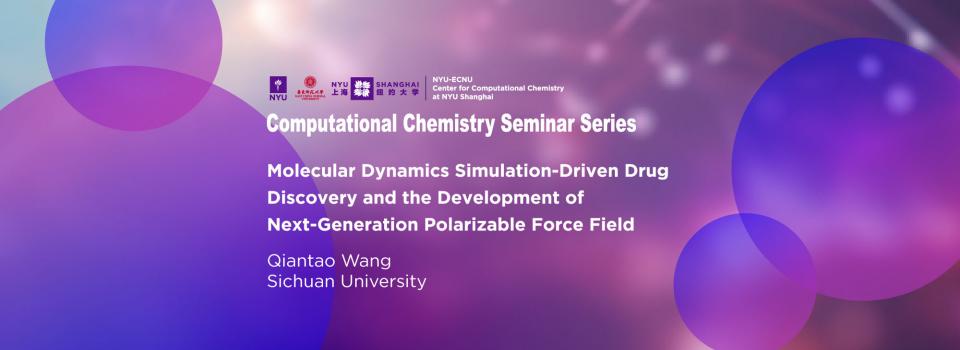
Abstract
With the rapid development in computing devices, molecular dynamics (MD) simulation as an accurate physics-based method has becoming more and more accessible for large scale protein-protein and protein-ligand calculations that are of fundamental interests in drug discovery. In this talk, we will discuss our recent progresses and challenges in applying MD simulation to real world drug discovery projects from virtual screening to lead optimization. Our recent development of the D-CTD charge transfer model and a proof-of-concept water model for the “bottom-up” force field development strategy will also be discussed. We hope the advances in next-generation force field could further push the accuracy boundary of biomolecular simulation and binding free energy calculation in the near future.
Biography
Qiantao Wang obtained his BSc in Physics and PhD in Pharmacy and Pharmaceutical Sciences from University of Manchester in 2005 and 2009, respectively. Then he moved to Rutgers to work with Professor David Case and then to University of Texas at Austin with Professor Pengyu Ren and Professor Kevin Dalby for post-doc trainings before he joined the West China School of Pharmacy of Sichuan University to start his independent academic career in 2015. He was promoted to Associate Professor in 2017 and Director of the Academic Development Office of the school in 2019. His current research interests are mainly focused on the molecular dynamic simulation-driven drug discovery and the development of next-generation polarizable force field.
Seminar Series by the NYU-ECNU Center for Computational Chemistry at NYU Shanghai


